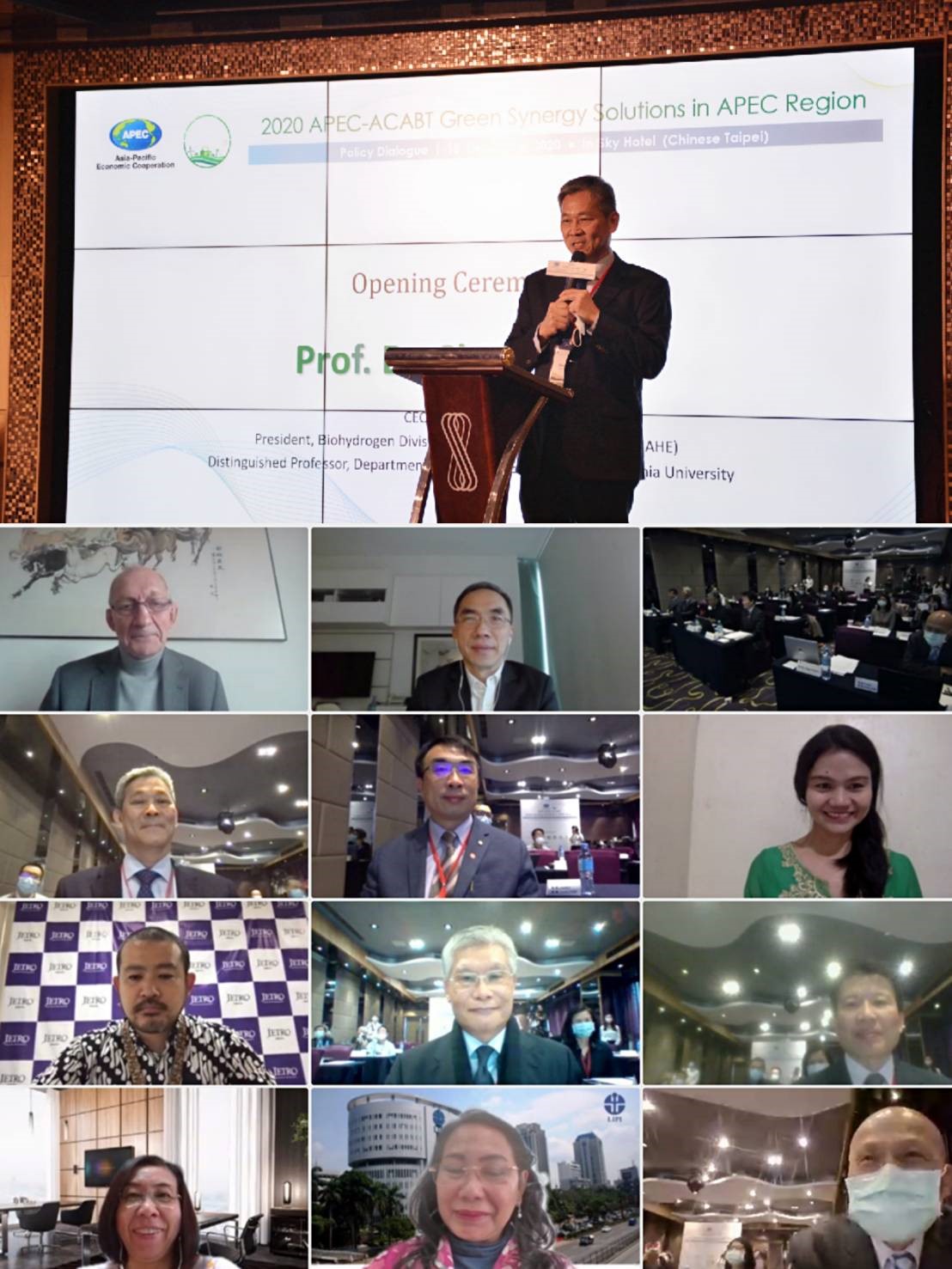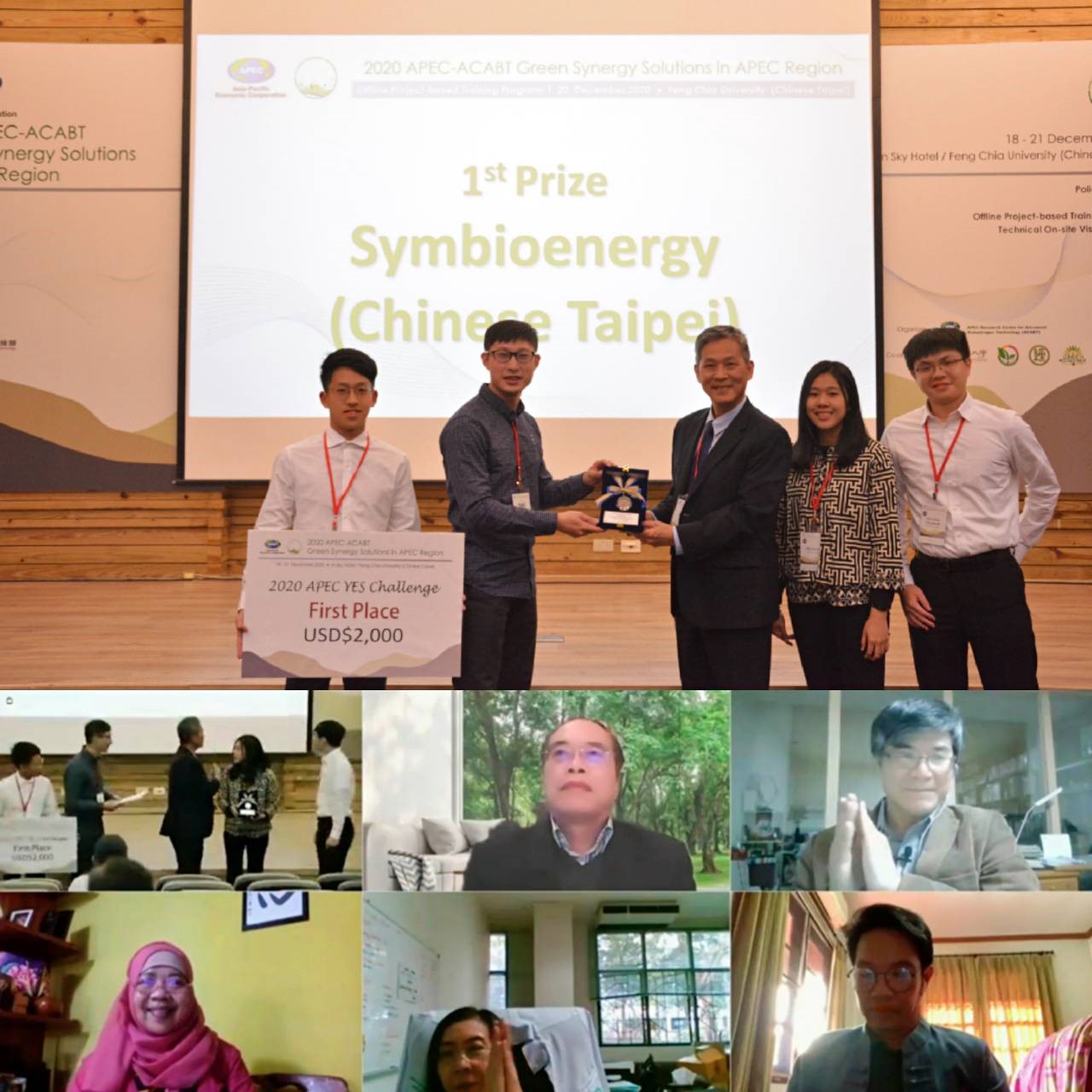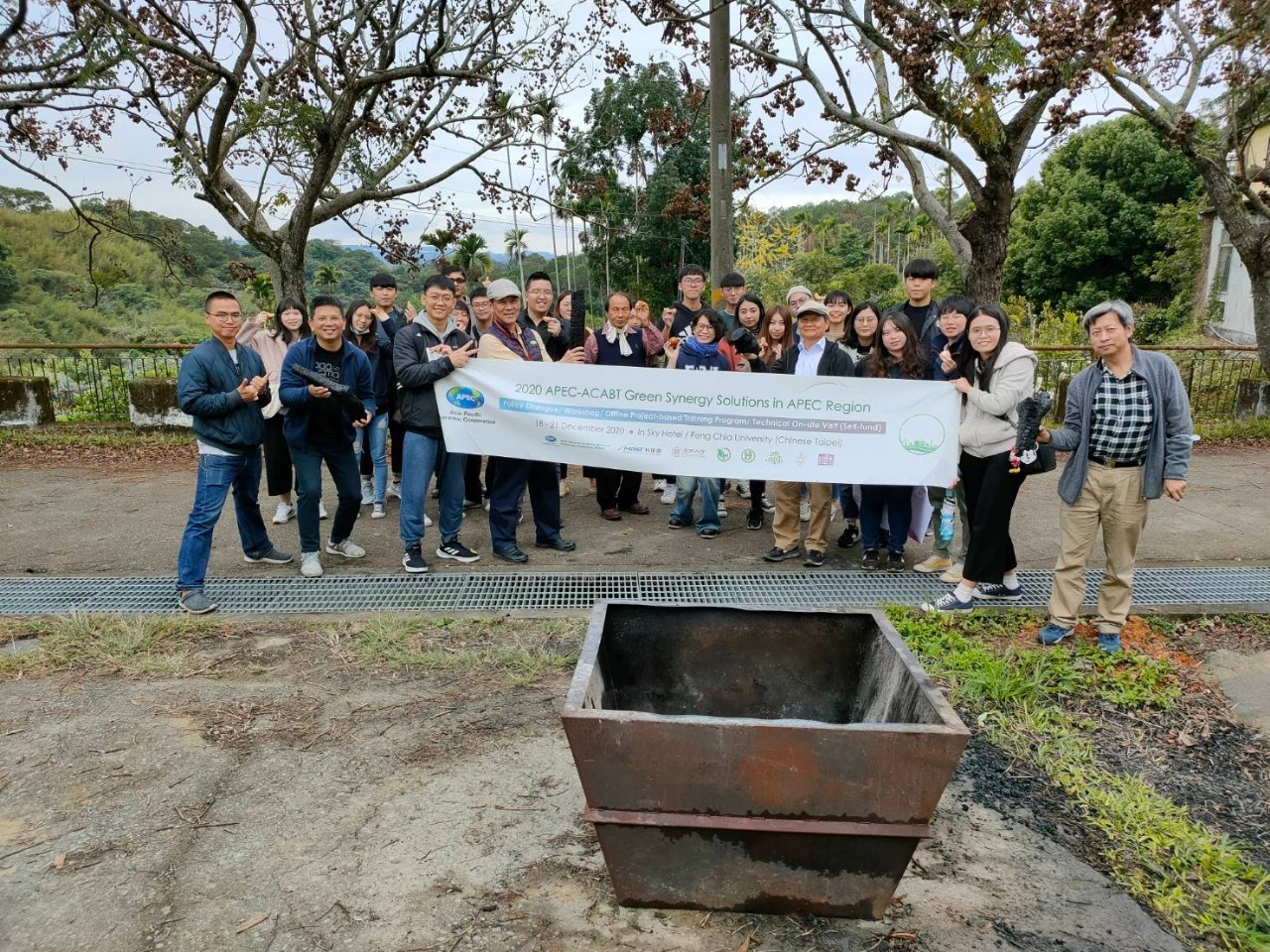
Photo 1: Prof. Dr. Shu-Yii, Wu, the CEO of APEC-ACABT gave a welcome speech.
During the COVID-19 pandemic, while many cities and areas all over the world have been in lockdown, APEC Research Center for Advanced Biohydrogen Technology (APEC-ACABT) hosted its first hybrid event with physical meeting at Taichung, Chinese Taipei and virtual meeting on Cisco Webex platform from 18 to 20 December. Approved and funded by APEC Support Fund (ASF) - Energy Efficiency and Low-Carbon Measures, the event focused on the topic “Green Synergy Solutions in APEC Region” and consisted of Policy Dialogue, Workshop, Offline Project-based Training Program and Self-Fund Technical On-site Practice. More than 120 participants including invited experts, researchers, and young entrepreneurs from 13 APEC member economies: Canada, China, Hong Kong, China, Indonesia, Japan, Korea, Malaysia, The Philippines, Russia, Singapore, Chinese Taipei, Thailand, and Viet Nam have attended to share their research outcomes and experiences.
At In Sky Hotel, Taichung, Chinese Taipei, the first day’s Policy Dialogue began with the welcome remarks by Prof. Dr. Shu-Yii, Wu, the CEO of APEC-ACABT. Nine invited experts from public and private sectors delivered speeches regrading “land use change and food security” and “biomass” issues based on researches and observations on the current bioenergy demands and potential development among APEC Region.
Extending from Policy Dialogue, the second day’s Workshop at Feng Chia University introduced latest theories and techniques applied in bioenergy field. While different types of biomass have been examined to be turned into bioenergy and to increase value-added resources and cost-effectiveness, the participating experts and young entrepreneur teams integrated learned knowledge and skills to create more innovative solutions.
On 20th December, APEC-ACABT held the Offline Project-based Training Program for the young entrepreneur teams from different APEC economies. 10 enrolled finalist teams from China, Thailand, Viet Nam, Indonesia, Malaysia, Russia and Chinese Taipei delivered their final pitches to propose solutions to environmental issues and their business plans to turn problems into economic values. After the final pitches, the prize winners were later announced as Team Symbioenergy (Chinese Taipei) for the first prize, Team SPECS (China) and Team Greeco (Malaysia) for the second prizes, Team CRAR (Thailand), Team Dua Orang (Malaysia) and Team Manta Ray (Indonesia) for the third prizes.

Photo 2. The first prize winner, members of Team Symbioenergy took photo together with the CEO of ACABT, Prof. Dr. Shu-Yii Wu.
The last day of event on 21st December, the participants at Taichung Chinese Taipei headed to Dongshi to attend the Technical On-site Practice (Self-fund). The Demo Site one was to visit the ecological village for anaerobic fermentation tank technical practice, which enabled the participants to learn the theories of anaerobic fermentation and experience some of the steps. After the Demo Site one, the participants went to explore the process of creating biochar. Through the process of “pyrolysis,” which was heating biomass to a certain temperature, the solid and carbonized biochar could be produced as a biofertilizer to increase agricultural production and to reduce chemical fertilizer consumption.

Photo 3. The participants were experiencing the process of creating biochar and took photo together
As APEC-ACABT rounded the event off, the oversea and local participation revealed a new successful model of hybrid events for member economies and private organizations to take advantage of.
